Is Gardening a Mindful Activity? Discover the Benefits and Joys
Gardening can be more than just a way to grow fresh vegetables or flowers. It offers a chance to practice mindfulness, which can greatly benefit your mental health and overall well-being. When you find yourself digging in the soil, planting seeds, or simply enjoying the beauty of your garden, you may notice a sense of peace and focus.
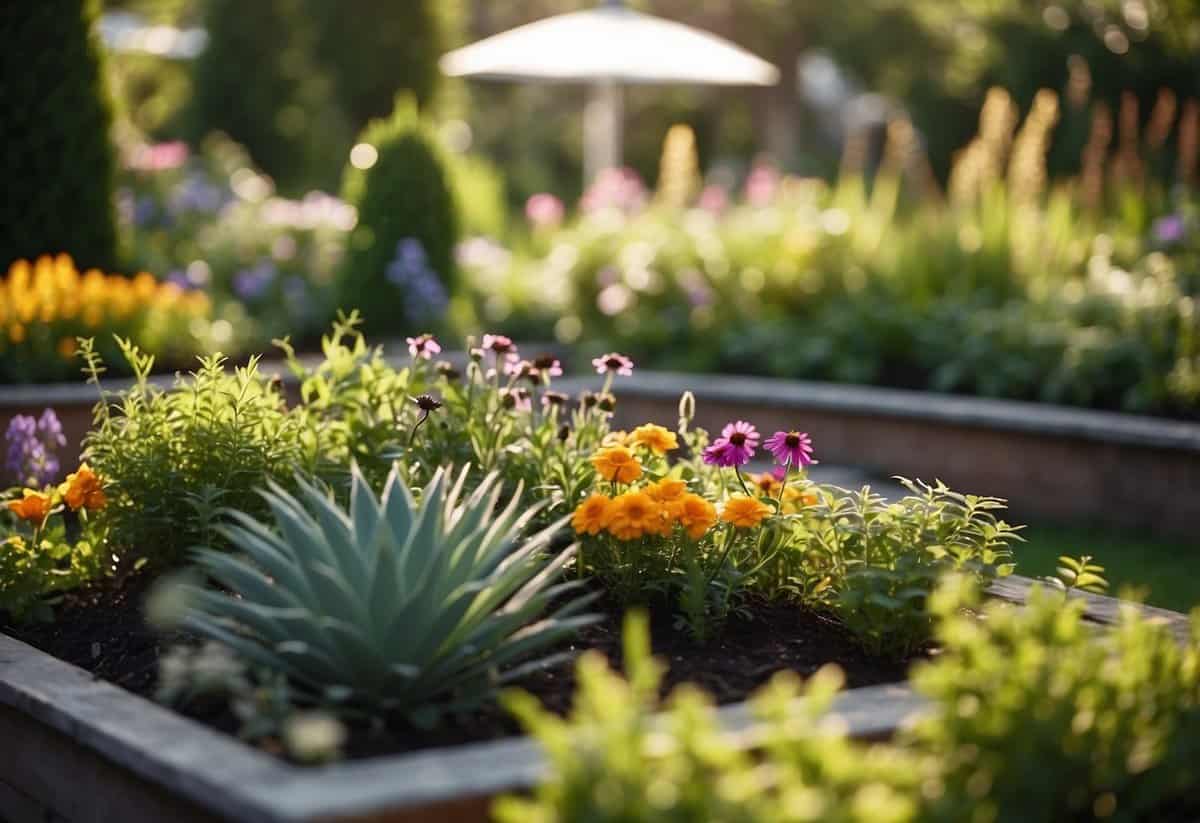
By incorporating mindful gardening techniques, you can turn this hobby into a powerful tool for reducing stress and improving your mood. The garden provides a calming environment where you can connect with nature and escape the distractions of daily life. Knowing that gardening is good for both your body and mind makes it even more rewarding.
Enjoying mindful gardening means being present in the moment and appreciating the simple joys each season brings. Whether you have a small balcony garden or a big backyard, tending to your plants can help you feel more centered and content.
Understanding Mindfulness in Gardening

Gardening can help you stay present and improve your mental health. By being aware and intentional, you can find greater peace and emotional wellness.
The Concept of Mindfulness
Mindfulness means being present and aware in the moment. It’s about noticing your surroundings, your thoughts, and your feelings without judgment. You pay full attention to what’s happening now rather than thinking about the past or worrying about the future.
When practicing mindfulness, you focus on activities such as breathing or sounds around you. Regular mindfulness can lower stress and improve mental health. It helps you connect with the present moment and feel more grounded in your daily life.
Mindful Activities: How Gardening Fits In
Gardening is a perfect way to practice mindfulness. When you garden, you focus on tasks like planting seeds, watering plants, and pulling weeds. This keeps your mind engaged and helps reduce stress.
Paying attention to the movements of your hands, the smell of the soil, and the sounds of nature makes gardening a meditative activity. You become fully immersed in the present moment. Gardening with mindfulness can bring you a sense of calm and fulfillment.
Gardening also has physical benefits. It can improve your mood, increase physical activity, and connect you with nature. This combination of physical and mental engagement makes it a powerful tool for enhancing your overall well-being.
The Sensory Experience of Gardening
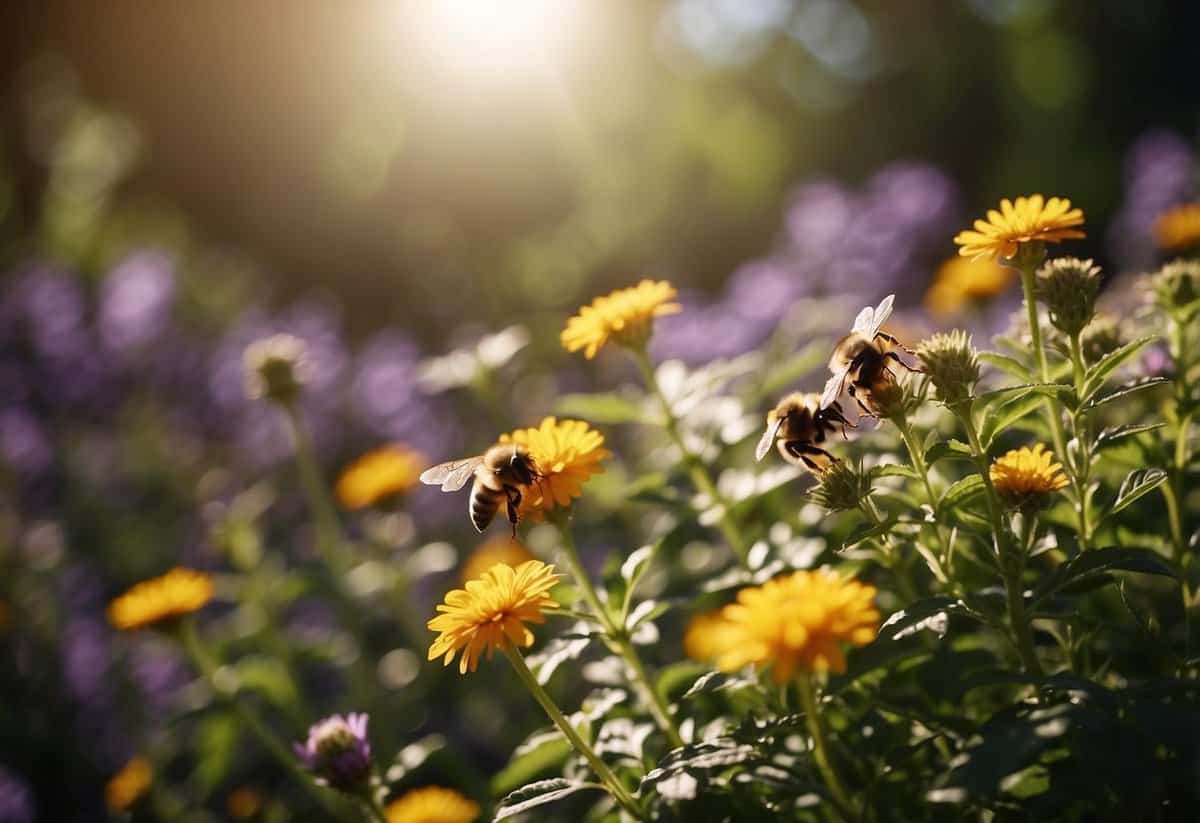
Gardening offers a rich sensory experience that engages your senses and enhances your mental state. The act of gardening can be deeply calming and nourishing for your mind.
Engaging With Nature Through Senses
When you garden, you engage with nature through various senses. Sight is stimulated by the vibrant colors of flowers and lush green plants. Watching plants grow and change daily brings visual pleasure.
Smell plays a crucial role, too. The earthy aroma of soil and the sweet fragrance of blooms like roses or lavender can be deeply relaxing.
Touch is involved when you handle plants, dig in the soil, and feel different textures. The sensation of crumbling soil between your fingers or the soft petals of a flower can be soothing.
Hearing the sounds of nature, such as birds chirping and leaves rustling, adds to the tranquil atmosphere. This sensory experience helps you connect more deeply with the natural world around you.
Effects of Sensory Engagement on Mental State
Engaging your senses in gardening positively impacts your mental state. The diverse sensory inputs can help reduce stress and anxiety. When your senses are focused on the tasks at hand, it’s easier to stay in the present moment.
Exposure to natural sensory stimuli like the smell of soil and flowers has been shown to increase levels of serotonin, improving mood and creating a sense of well-being.
Physical touch in gardening, such as handling soil and plants, can make you feel grounded and connected to the earth. This connection can foster a sense of calm and balance.
Hearing nature’s sounds, like birds or wind, provides white noise that can help alleviate mental fatigue. For these reasons, the sensory experience of gardening not only enhances the joy of the activity but also contributes significantly to mental wellness.
Health Benefits of Gardening
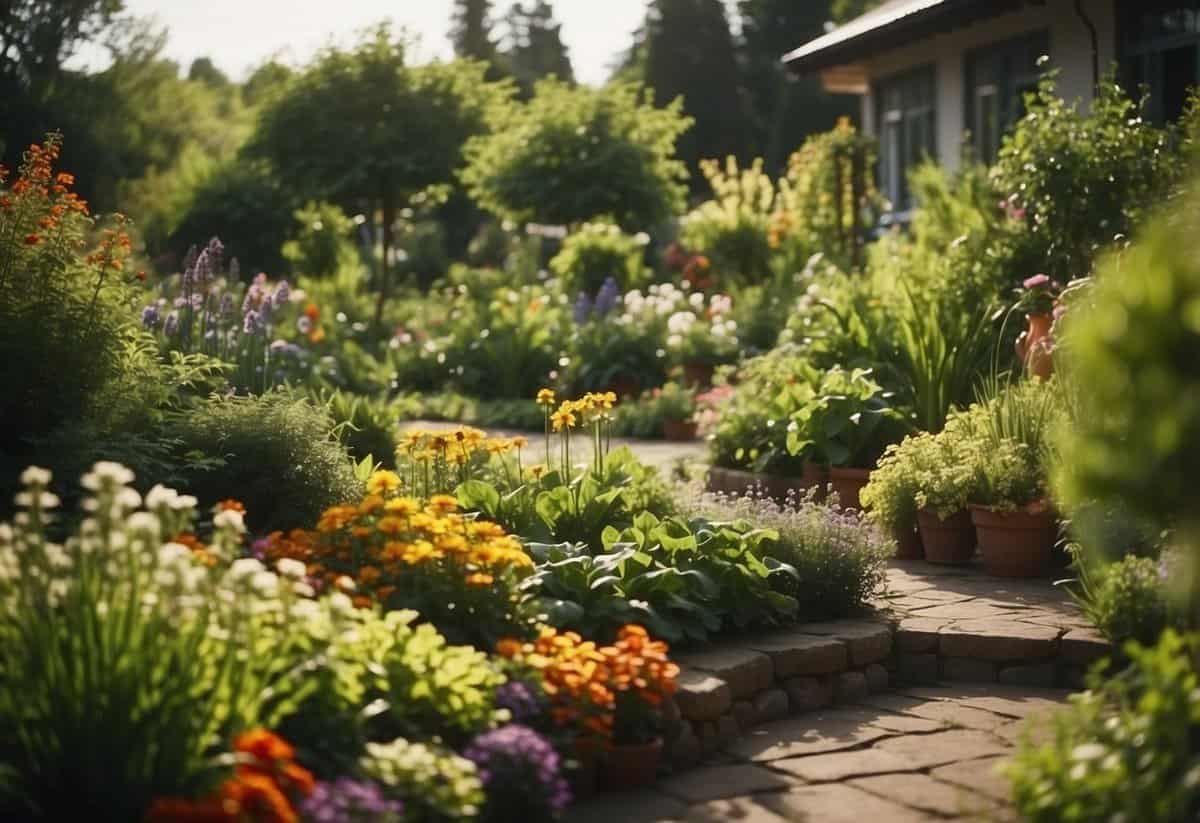
Gardening provides a range of health benefits. It enhances physical health by keeping you active, helps reduce stress and anxiety, and boosts mood and self-esteem.
Physical Health Improvements
Gardening includes tasks like digging, weeding, and planting that count as exercise. These activities help lower blood pressure and improve heart rate. Gardening can even help you burn calories, making it a good way to maintain a healthy weight. Engaging in regular gardening can improve your muscle strength and flexibility too. It keeps you moving and active, which is crucial for maintaining overall physical health. Gardening also provides a source of fresh and healthy food, which can contribute to better nutrition.
Reduction in Stress and Anxiety
Spending time in the garden can help reduce stress and anxiety. The repetitive tasks involved in gardening can promote a sense of calm and mindfulness. Being outdoors and connecting with nature can lower cortisol levels, a hormone linked to stress. This reduction in stress levels can lead to better mental health and decreased symptoms of anxiety and depression. The routines and structure that gardening provides can create a sense of order and predictability, which can be comforting.
Enhancement of Mood and Self-Esteem
Gardening can also boost your mood and self-esteem. Seeing the fruits of your labor, like blooming flowers or growing vegetables, can provide a sense of accomplishment. This can greatly enhance your mood and make you feel more positive. Gardening can offer a sense of purpose and achievement, which contributes to high self-esteem. The process of nurturing plants and watching them thrive can also bring joy and satisfaction, making you feel happier and more content.
Gardening can be a powerful way to improve both your physical and mental well-being. By embracing gardening, you can enjoy its many benefits, from better physical health to a happier and more balanced mental state.
The Role of Gardening in Personal Growth
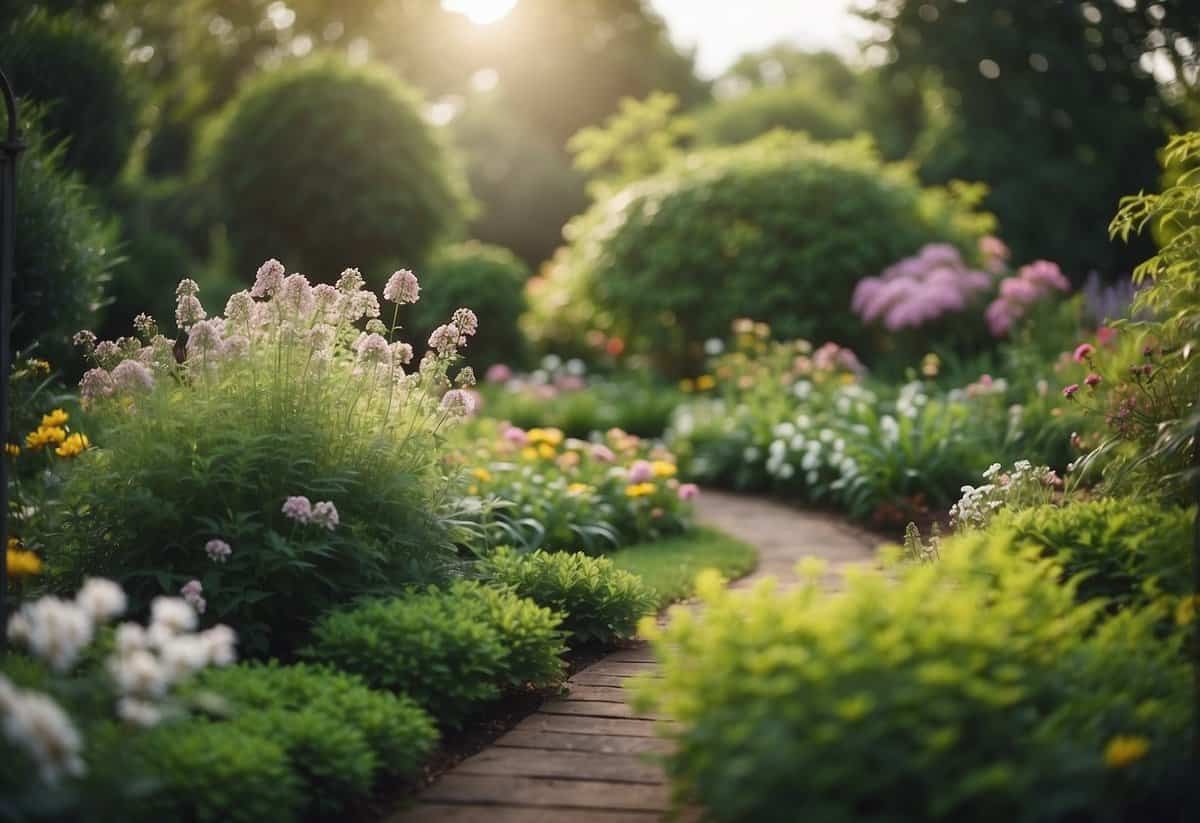
Gardening plays a significant role in personal growth by teaching you patience, acceptance, and connectivity with the natural life cycle. This hands-on activity allows you to develop spiritual and emotional well-being through nurturing plants and immersing yourself in nature.
Cultivating Patience and Acceptance
Gardening helps you develop patience and acceptance in a unique way. Plants grow at their own pace, teaching you to wait and appreciate every stage. You can’t rush a seedling into a fully-grown plant overnight. Over time, you learn to find joy in small changes and growth.
This process also encourages acceptance. Sometimes, plants don’t thrive despite your best efforts. Gardening teaches you to let go and accept outcomes beyond your control. This lesson in acceptance extends to other areas of your life, helping you approach challenges with grace and resilience.
Working with nature also fosters a sense of gratitude. Being grateful for the small victories, like a new flower bud or a freshly picked vegetable, enriches your experience. Gardening becomes a daily practice of mindfulness and appreciation.
Connecting to the Life Cycle
Gardening intimately connects you to the life cycle of plants, which includes birth, growth, and death. This connection deepens your understanding of life’s impermanence and beauty. Witnessing the full cycle from seed to compost provides a spiritual sense of renewal and continuity.
Engaging with the life cycle of plants also sparks creativity. You might experiment with different plant varieties or design unique garden layouts. This creativity enhances your problem-solving skills and promotes mental agility.
Moreover, acknowledging the end of a plant’s life, whether through seasonal changes or natural death, cultivates a sense of humility and respect for life’s natural processes. This acceptance of death as part of the cycle instills a deeper appreciation for the present moment.
By focusing on the life cycle, gardening becomes more than just a hobby. It serves as a lesson in life’s ebb and flow, reinforcing values like patience, gratitude, and acceptance. This holistic approach nurtures both your garden and your inner self.
Creating a Mindful Gardening Practice
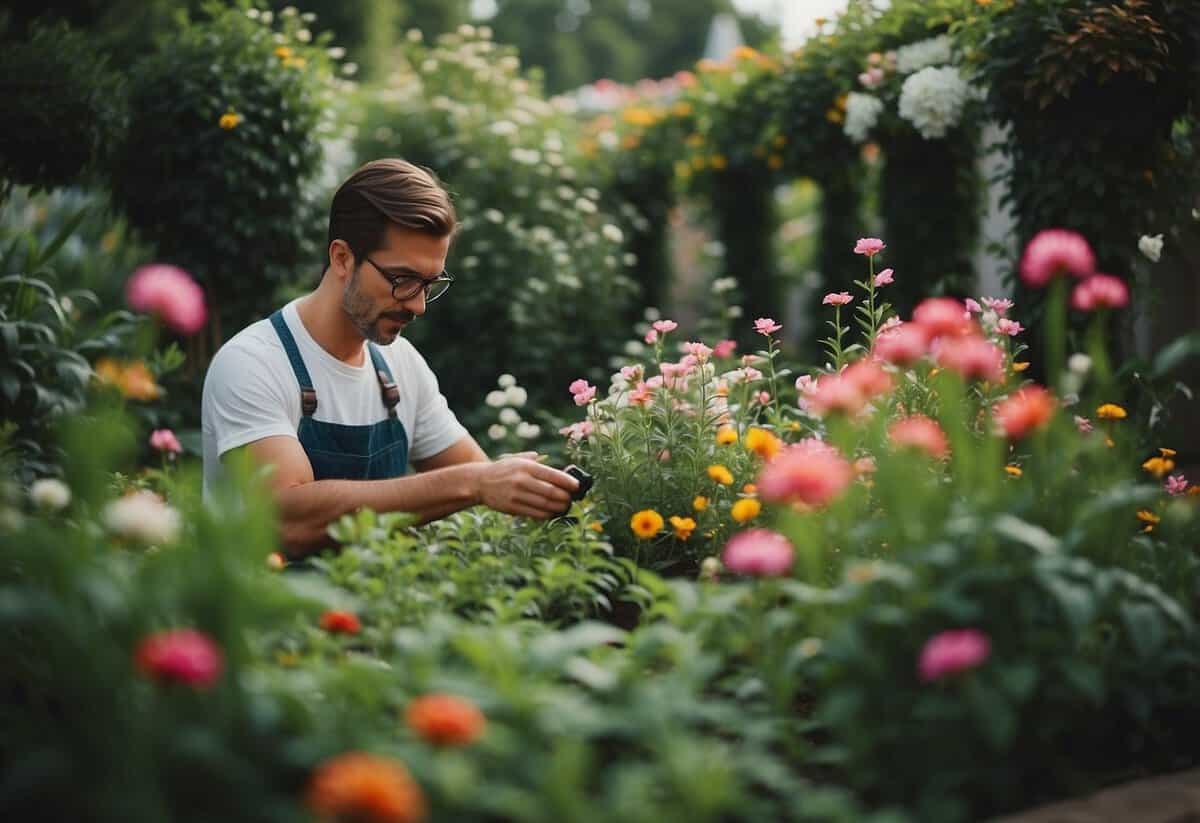
Mindful gardening can bring joy and peace into your daily routine. By being present and intentional with each task, you can transform gardening into a form of meditation.
Intentional Planting and Tending
Start by planning your garden thoughtfully. Choose plants that you love and that suit your climate. The act of planting can be very grounding if you’re focused on the task at hand. Feel the soil between your fingers and take deep breaths as you work.
Watering plants, pulling weeds, and tending to your garden should be done slowly and with care. Be present during these activities by noticing the small details, like the way sunlight filters through leaves. The more mindful you are, the more you will enjoy gardening as a form of relaxation.
Incorporating Mindfulness Techniques
Integrate mindfulness techniques while you garden. Begin with deep breathing exercises. Stand still for a moment, inhale deeply, and exhale slowly. This helps you center your mind. You can also treat gardening like a yoga practice, where each movement is deliberate.
Observe the sights, sounds, and smells around you. Listen to birds chirping and feel the texture of plants. Practicing gratitude for the beauty of nature can enhance your experience. By being fully present, you make gardening a calming, meditative activity.
Maintaining a Gardening Journal
Keep a gardening journal to track your progress and reflect on your experiences. Write down what you planted, how you felt while working in the garden, and any observations you made. Journaling can be a mindful activity in itself.
Include photos or sketches of your plants to make the journal more engaging. Reflecting on your entries can boost your joy and motivate you to keep practicing mindful gardening. Having a record of your efforts gives you a way to look back and appreciate how much you’ve grown, both in your garden and in your mindfulness practice.







